- Home
- Roy J. Snell
Connie Morgan in the Lumber Camps Page 3
Connie Morgan in the Lumber Camps Read online
Page 3
CHAPTER II
HURLEY
With a long-drawn whistle the great trans-continental train ground to astop at a tiny town that consisted simply of a red painted depot, a hugewater tank, and a dozen or more low frame houses, all set in a littleclearing that was hardly more than a notch in one of the parallel wallsof pine that flanked the railroad. The coloured porter glancedcontemptuously out of the window and grumbled at the delay. Theconductor, a dapper little man of blue cloth and brass buttons, bustledimportantly down the aisle and disappeared through the front door.Connie raised his window and thrust his head out. Other heads protrudedfrom the long line of coaches, and up in front men were swinging fromthe platforms to follow the trainmen who were hurrying along the sidesof the cars. Connie arose and made his way forward. Two days and nightsin the cramped quarters of the car had irked the boy, used as he was tothe broad, open places, and it was with a distinct feeling of reliefthat he stepped to the ground and breathed deeply of the pine-scentedair.
Upon a siding stood several flat cars onto which a dozen or more roughlydressed men were busily loading gear and equipment under the eye of amassive-framed giant of a man in a shirt of brilliant red flannel, whosat dangling his legs from the brake wheel of the end car. A stubble ofred beard covered the man's undershot jaw. The visor of a greasy plushcap, pushed well back upon his head, disclosed a shock of red hair thatnearly met the shaggy eyebrows beneath which a pair of beady eyes kepttab on the movements of his crew. To the stalled train, and the peoplewho passed close beside him, the man gave no heed.
Up ahead, some eight or ten rods in front of the monster engine thatsnorted haughty impatience to be gone, Connie saw the cause of thedelay. A heavy, underslung logging wagon was stalled directly upon thetracks, where it remained fixed despite the efforts of the four bighorses that were doing their utmost to move it in response to a loudstring of abusive epithets and the stinging blows of a heavy whip whichthe driver wielded with the strength of a husky arm. A little knot ofmen collected about the wagon, and the driver, abandoning his vainattempt to start the load, addressed the crowd in much the same languagehe had used toward the horses. The train conductor detached himself fromthe group and hurried toward the flat cars.
"Hey, you," he piped, "are you the boss of this crew?"
The huge man upon the brake wheel paid him no heed, but bawled a profanereprimand for the misplacing of a coil of wire line.
"Hey, you, I say!" The little conductor was fairly dancing impatience."You, Red Shirt! Are you the boss?"
The wire line having been shifted to suit him, the other condescended toglare down into the speaker's face. "I be--what's loose with you?"
"Get that wagon off the track! You've held us up ten minutes already!It's an outrage!"
"Aw, go chase yersilf! Whad'ye s'pose I care av yer tin minutes late, ertin hours? I've got trouble av me own."
"You get that wagon moved!" shrilled the conductor. "You're obstructingthe United States mail, and I guess you know what that means!"
Reference to the mail evidently had its effect upon the boss, for hevery deliberately clambered to the ground and made his way leisurelytoward the stalled wagon. "Give 'em the gad, ye wooden head! What yestandin' there wid yer mout' open fer?"
Once more the driver plied his heavy lash and the big horses strained tothe pull. But it was of no avail.
"They can't pull it, it ain't any good to lick 'em," remonstrated theengineer. "A couple of you boys climb up and throw some of that stuffoff. We can't wait here all day."
The fireman and the brakeman started toward the load, but wereconfronted by the glowering boss. "Ye'll lay off a couple av trips whilethey fan ye back to life, av ye try ut!" he roared. The men turned back,and the boss addressed the engineer. "You try ut yersilf, av ye'relookin' fer a nice little lay-off in the hospital. Av ye lay here allday an' all night, too, ye've got no wan but yer company to thank. Whowas ut put them rotten planks in that crossin'?"
The engineer possessed a certain diplomacy that the conductor did not.
"Sure, it's the company's fault. Any one can see that. They've got nobusiness putting such rotten stuff into their crossings. I didn't wantto butt in on you, boss, but if you'll just tell us what to do we'llhelp you get her out of there."
The boss regarded him with suspicion, but the engineer was smiling in afriendly fashion, and the boss relented a little. "Mostly, ut's thecompany's fault, but partly ut's the fault av that blockhead av ateamster av mine. He ain't fit to drive a one-horse phaeton fer an owldwoman's home." While the boss talked he eyed the stalled wagoncritically. "Come over here, a couple av you sleepwalkers!" he called,and when the men arrived from the flat cars, he ripped out his ordersalmost in a breath. "Git a plank befront that hind wheel to ride ut overthe rail! You frog-eater, there, that calls yersilf a teamster--crampthem horses hard to the right! Freeze onto the spokes now, ye sons avrest, an' ROLL 'ER!" Once more the big horses threw their weight intothe traces, and the men on the wheels lifted and strained but the wagonheld fast. For a single instant the boss looked on, then with a growlhe leaped toward the wagon.
"Throw the leather into 'em, Frenchy! Make thim leaders pull up!"Catching the man on the offending hind wheel by the shoulder he sent himspinning to the side of the track, and stooping, locked his thickfingers about a spoke, set his great shoulder against the tire and withlegs spread wide, heaved upward. The load trembled, hesitated aninstant, and moved slowly, the big boss fairly lifting the wheel up theshort incline. A moment later it rolled away toward the flat cars,followed by the boss and his crew.
"Beef and bluff," grinned Connie to himself as the crowd of passengersreturned to the coaches.
Connie found Mike Gillum busily stowing potatoes in an underground rootcellar. "He's almost as big as the man with the red shirt," thought theboy as he watched Mike read the note Waseche Bill had given him beforehe left Ten Bow.
The man paused in the middle to stare incredulously at the boy. "D'yemane," he asked, in his rich Irish brogue, "thot ut's yersilf's thepardner av Waseche Bill--a kid loike you, the pardner av _him_?"
Connie laughed; and unconsciously his shoulders stiffened. "Yes," heanswered proudly, "we've been partners for two years."
Still the man appeared incredulous. "D'ye mane ye're the wan thot he wuztellin' thrailed him beyant the Ogilvies into the Lillimuit? An' put inthe time whilst he wuz in the hospital servin' wid the Mounted? Moindye, lad, Oi've be'n in the Narth mesilf, an' Oi know summat av it'sways."
"Yes, but maybe Waseche bragged me up more than----"
Mike Gillum interrupted him by thrusting forth a grimy hand. "Br-raggedye up, is ut! An-ny one thot c'n do the things ye've done, me b'y, don'tnade no braggin' up. Ut's proud Oi am to know ye--Waseche towld me yewuz ondly a kid, but Oi had in me moind a shtrappin' young blade avmebbe ut's twinty-foor or -five, not a wee shtrip av a lad loike ye.Come on in the house till Oi wash up a bit, thim praties has got me backfair bruk a'ready."
The big Irishman would not hear of the boy's putting up at a hotel, andafter supper the two sat upon the foreman's little veranda thatoverlooked the river and talked until far into the night.
"So ye've got to kape yer oye on um, lad," the Irishman concluded, aftera long discourse upon the ins and outs, and whys and wherefores of thelogging situation on Dogfish. "Ut's mesilf'll give you all the help Oican, faylin' raysponsible fer sindin' him to Waseche. There's divilmintin the air fer this winter. The Syndicate's goin' to put a camp onDogfish below ye, same as last winter. Oi've wor-rked fer um long enoughto know ut's only to buck you folks they're doin' ut, fer their planswuz not to do an-ny cuttin' on the Dogfish tract fer several years tocome. Whin Oi heard they wuz goin' to put a camp there Oi applied ferthe job av bossin' ut, but they towld me Oi wuz nayded over on WillowRiver." Mike Gillum knocked the dottle from his pipe and grinnedbroadly. "'Twuz a complimint they paid me," he said. "They know me loikeOi know thim--av there's crooked wor-ruk to be done in a camp, they takecare that Oi ain't the boss av ut. But W
illow River is only tin milesback--due narth av the McClusky tract."
MIKE GILLUM TOOK CONNIE TO THE RIVER WHERE MILES OF BOOMSHELD MILLIONS OF FEET OF LOGS]
The next morning Mike Gillum took Connie to the river where miles ofbooms held millions of feet of logs which awaited their turn at thesawmills whose black smoke belched from stacks at some distancedownstream where the river plunged over the apron of the dam in a madwhirl of white water.
"How can they tell which mill the logs are to go to?" asked the boy, ashe gazed out over the acres of boomed timber.
"Each log carries uts mark, they're sorted in the river. We'll walk ondown where ye c'n see um jerked drippin' to the saws."
"Does Hurley live here?" asked Connie, as the two followed the riverbank toward the dam.
"Naw, he lives at Pine Hook, down the road a ways. Ut's about time hewuz showin' up, though. He lays in his supplies an' fills in his crewhere. He towld me last spring he wuz goin' to run two camps thiswinter." They were close above the dam and had to raise their voices tomake themselves heard above the roar of the water that dashed over theapron.
"Look!" cried Connie, suddenly, pointing toward a slender green canoethat floated in the current at a distance of a hundred yards or so fromshore, and the same distance above the falls. "There's a woman in it andshe's in trouble!" The big Irishman looked, shading his eyes with hishands.
"She's losin' ground!" he exclaimed. "She's caught in the suck av thefalls!" The light craft was pointed upstream and the woman was paddlingfrantically, but despite her utmost efforts the canoe was being drawnslowly toward the brink of the white water apron.
With a roar the big Irishman sprang to the water's edge and raced up thebank toward a tiny wharf to which were tied several skiffs with theiroars in the locks. Connie measured the distance with his eye. "He'llnever make it!" he decided, and jerking off coat and shoes, rushed tothe water. "Keep paddling, ma'am!" he called at the top of his lungs,and plunged in. With swift, sure strokes the boy struck out for thecanoe. The woman saw him coming and redoubled her efforts.
"Come back, ye idiot!" bellowed a voice from the bank, but Connie didnot even turn his head. He had entered the water well upstream from thelittle craft, and the current bore him down upon it as he increased hisdistance from shore. A moment later he reached up and grasped thegunwale. "Keep paddling!" he urged, as he drew himself slowly over thebow, at the same time keeping the canoe in perfect balance. "Where'syour other paddle?" he shouted.
"There's--only--this," panted the woman.
"Give it here!" cried the boy sharply, "and lie flat in the bottom!We've got to go over the dam!"
"No, no, no!" shrieked the woman, "we'll be killed! Several----"
With a growl of impatience, Connie wrenched the paddle from her hands."Lie down, or I'll knock you down!" he thundered, and with a moan ofterror the woman sank to the bottom of the canoe. Kneeling low, the boyheaded the frail craft for a narrow strip of water that presented anunbroken, oily surface as it plunged over the apron. On either hand theslope showed only the churning white water. Connie gave one glancetoward the bank where a little knot of men had collected, and the nextmoment the canoe shot, head on, straight over the brink of the falls.For an instant it seemed to hang suspended with half its length hangingover, clear of the water. Then it shot downward to bury its bow in thesmother of boiling churning, white water at the foot of the apron. Fora moment it seemed to Connie as though the canoe were bound to beswamped. It rolled loggily causing the water it had shipped to sloshover the clothing and face of the limp form of the woman in the bottom.The boy was afraid she would attempt to struggle free of it, but she layperfectly still. She had fainted. The canoe hesitated for a moment,wobbling uncertainly, as the overroll at the foot of the falls held itclose against the apron, then it swung heavily into the grip of an eddyand Connie at length succeeded in forcing it toward the bank, wallowingso low in the water that the gunwales were nearly awash.
Eager hands grasped the bow as it scraped upon the shore, and while themen lifted the still form from the bottom, Connie slipped past them andmade his way to the place he had left his coat and shoes.
Mike Gillum met him at the top of the bank.
"Arrah! Me laddie, ut's a gr-rand thrick ye pulled! No wan but a_tillicum_ av the Narth country c'ud of done ut! Oi see fer mesilf howut come ye're the pardner av Waseche Bill. Av Oi had me doubts about yerbitin' off more thin ye c'ud chaw wid Hurley, Oi've got over 'em, now,an'--" He stopped abruptly and glanced toward the river. "Shpakin' avHurley--there he comes, now!" he whispered, and Connie glanced up to seea huge man advancing toward them at the head of a little group thatapproached from the point where he had landed the canoe. The boy staredin amazement--it was the red-shirted giant of the stalled wagon.
"So that's Hurley," said he, quietly. "Well, here's where I strike himfor a job."

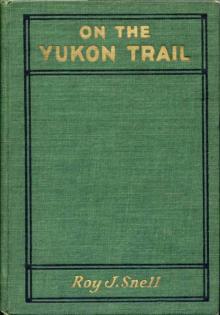 On the Yukon Trail
On the Yukon Trail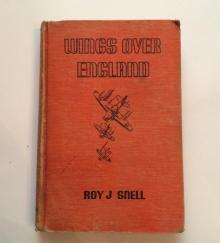 Wings over England
Wings over England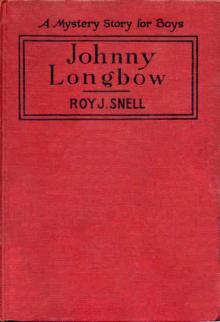 Johnny Longbow
Johnny Longbow Sally Scott of the WAVES
Sally Scott of the WAVES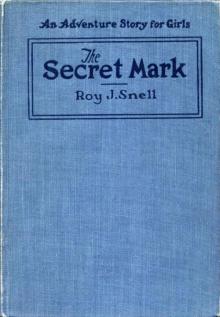 The Secret Mark
The Secret Mark Betty Leicester's Christmas
Betty Leicester's Christmas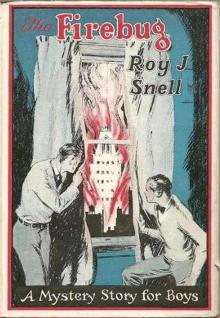 The Firebug
The Firebug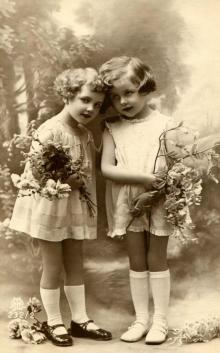 Minnie Brown; or, The Gentle Girl
Minnie Brown; or, The Gentle Girl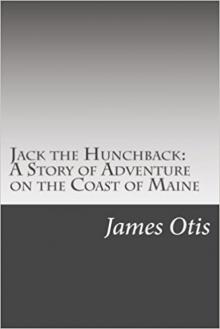 Jack the Hunchback: A Story of Adventure on the Coast of Maine
Jack the Hunchback: A Story of Adventure on the Coast of Maine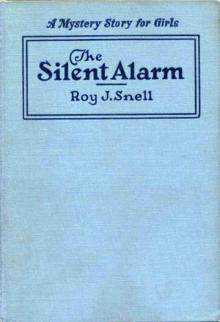 The Silent Alarm
The Silent Alarm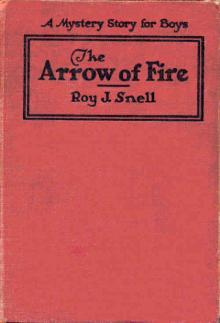 The Arrow of Fire
The Arrow of Fire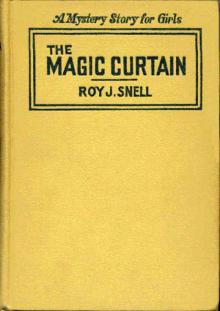 The Magic Curtain
The Magic Curtain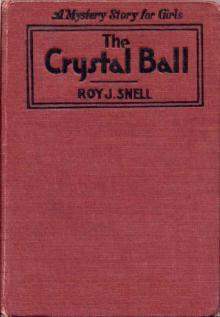 The Crystal Ball
The Crystal Ball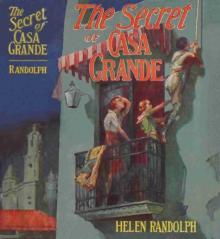 The Secret of Casa Grande
The Secret of Casa Grande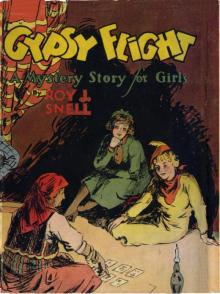 Gypsy Flight
Gypsy Flight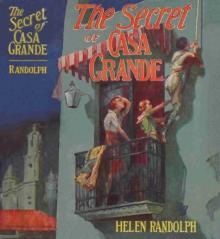 The Mystery of Carlitos
The Mystery of Carlitos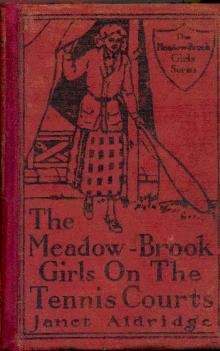 The Meadow-Brook Girls on the Tennis Courts; Or, Winning Out in the Big Tournament
The Meadow-Brook Girls on the Tennis Courts; Or, Winning Out in the Big Tournament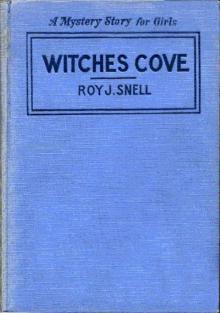 Witches Cove
Witches Cove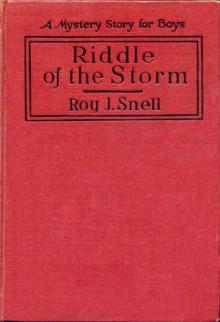 Riddle of the Storm
Riddle of the Storm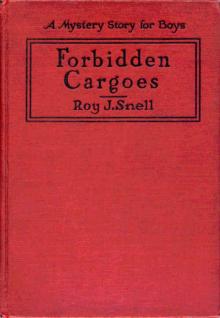 Forbidden Cargoes
Forbidden Cargoes Green Eyes
Green Eyes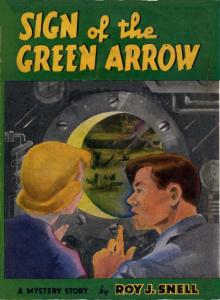 Sign of the Green Arrow
Sign of the Green Arrow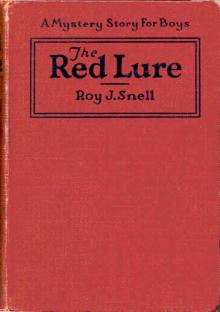 The Red Lure
The Red Lure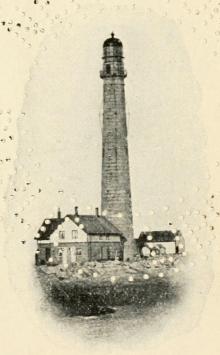 The Light Keepers: A Story of the United States Light-house Service
The Light Keepers: A Story of the United States Light-house Service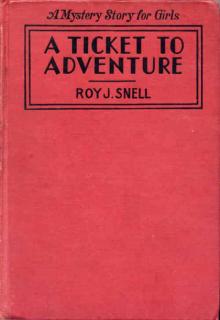 A Ticket to Adventure
A Ticket to Adventure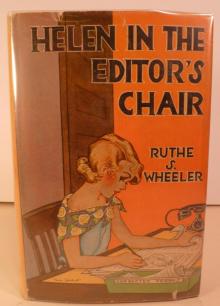 Helen in the Editor's Chair
Helen in the Editor's Chair Blue Envelope
Blue Envelope The Purple Flame
The Purple Flame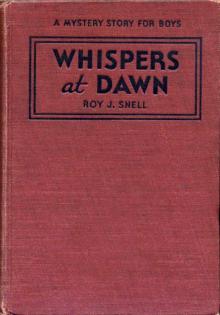 Whispers at Dawn; Or, The Eye
Whispers at Dawn; Or, The Eye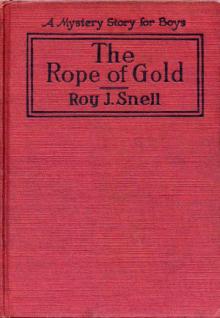 The Rope of Gold
The Rope of Gold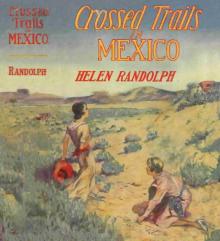 Crossed Trails in Mexico
Crossed Trails in Mexico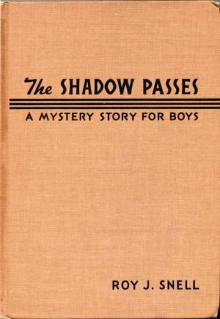 The Shadow Passes
The Shadow Passes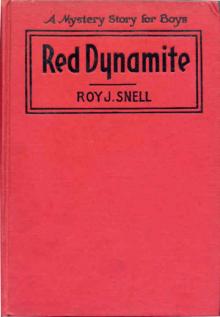 Red Dynamite
Red Dynamite Blue Grass Seminary Girls on the Water
Blue Grass Seminary Girls on the Water The Cruise of the O Moo
The Cruise of the O Moo